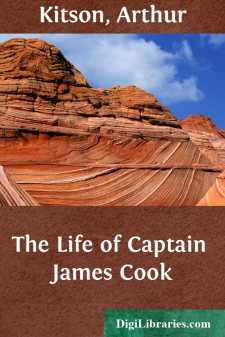Categories
- Antiques & Collectibles 13
- Architecture 36
- Art 48
- Bibles 22
- Biography & Autobiography 816
- Body, Mind & Spirit 145
- Business & Economics 28
- Children's Books 17
- Children's Fiction 14
- Computers 4
- Cooking 94
- Crafts & Hobbies 4
- Drama 346
- Education 58
- Family & Relationships 59
- Fiction 11834
- Foreign Language Study 3
- Games 19
- Gardening 17
- Health & Fitness 34
- History 1378
- House & Home 1
- Humor 147
- Juvenile Fiction 1873
- Juvenile Nonfiction 202
- Language Arts & Disciplines 89
- Law 16
- Literary Collections 686
- Literary Criticism 179
- Mathematics 13
- Medical 41
- Music 40
- Nature 179
- Non-Classifiable 1768
- Performing Arts 7
- Periodicals 1453
- Philosophy 66
- Photography 2
- Poetry 897
- Political Science 203
- Psychology 45
- Reference 154
- Religion 516
- Science 126
- Self-Help 85
- Social Science 82
- Sports & Recreation 34
- Study Aids 3
- Technology & Engineering 59
- Transportation 23
- Travel 463
- True Crime 29
Our website is made possible by displaying online advertisements to our visitors.
Please consider supporting us by disabling your ad blocker.
The Life of Captain James Cook
by: Arthur Kitson
Categories:
Description:
Excerpt
CHAPTER 1. EARLY YEARS.
James Cook, the Circumnavigator, was a native of the district of Cleveland, Yorkshire, but of his ancestry there is now very little satisfactory information to be obtained. Nichols, in his Topographer and Genealogist, suggests that "James Cooke, the celebrated mariner, was probably of common origin with the Stockton Cookes." His reason for the suggestion being that a branch of the family possessed a crayon portrait of some relation, which was supposed to resemble the great discoverer. He makes no explanation of the difference in spelling of the two names, and admits that the sailor's family was said to come from Scotland.
Dr. George Young, certainly the most reliable authority on Cook's early years, who published a Life in 1836, went to Whitby as Vicar about 1805, and claims to have obtained much information about his subject "through intercourse with his relatives, friends, and acquaintances, including one or two surviving school companions," and appears to be satisfied that Cook was of Scotch extraction. Dr. George Johnston, a very careful writer, states in his Natural History of the Eastern Borders, that in 1692 the father of James Thomson, the author of The Seasons, was minister of Ednam, Roxburghshire, and a man named John Cook was one of the Elders of the Kirk. This John Cook married, on the 19th January 1693, a woman named Jean Duncan, by whom he had a son, James, baptised 4th March 1694, and this child, Johnston positively asserts, was afterwards the father of the future Captain Cook. The dates of the marriage and baptism have been verified by the Reverend John Burleigh, minister of Ednam, and they agree with the probable date of the birth of Cook's father, for he died in 1778 at the age of eighty-five. Owing to the loss of the church records for some years after 1698, Mr. Burleigh is unable to trace when this James Cook left Ednam to "better himself," but he would take with him a "testificate of church membership" which might possibly, but not probably, still exist. Attracted, perhaps, by the number of Scotch people who flocked into the north of Yorkshire to follow the alum trade, then at its height, James Cook settled down and married; and the first positive information to be obtained is that he and his wife Grace (her maiden name has so far escaped identification, though she is known to have been a native of Cleveland) resided for some time at Morton, in the parish of Ormsby, and here their eldest child, John, was born in January 1727. Dr. Young says that James Cook had a superstition that his mother's farewell was prophetic of his marriage, for her words were "God send you Grace."
BIRTH-PLACE.
Shortly after the birth of John, the Cooks left Morton for Marton, a village a few miles away, and the similarity of the two names has caused some confusion. At Marton the father worked for a Mr. Mewburn, living in a small cottage built of mud, called in the district a clay biggin. This cottage was pulled down in 1786, when Major Rudd erected a mansion near the spot....


